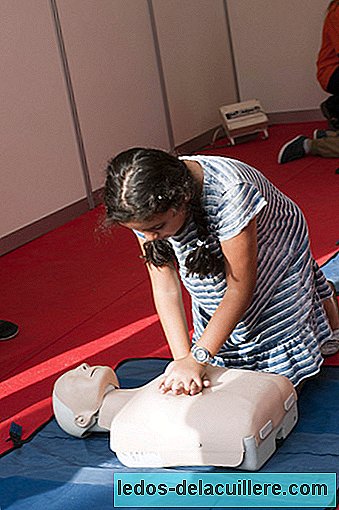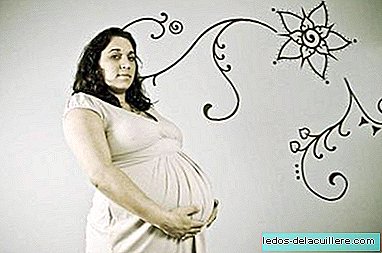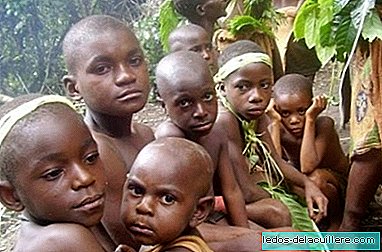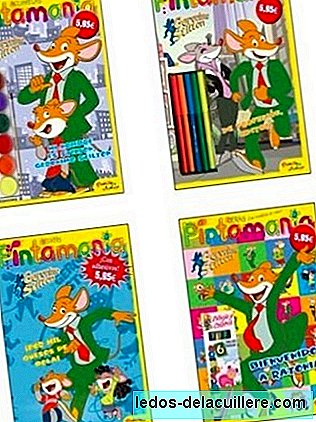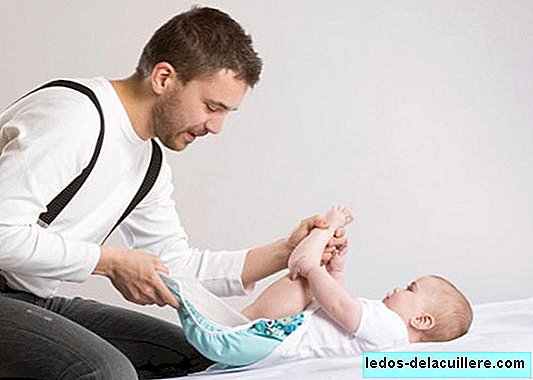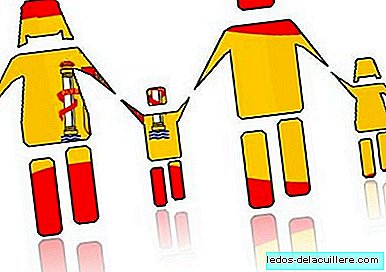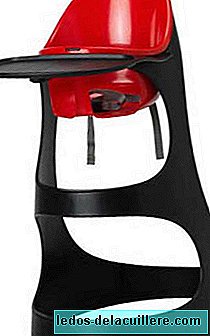By itself the baby's skin smells phenomenal, but nevertheless many times they want to add cosmetic products for different purposes, even to protect it (and not just to perfume them). But, Can any cosmetic product be used for the baby and young children? What precautions should I take so that these products do not pose a risk to my child?
We will begin by pointing out that these doubts have their reason for being, very justified, since if in any person the skin is exposed to the products that are applied, in babies and young children this exposure is much more evident. And not only because of the characteristics of the infant dermis, but also because of its way of acting, because of its behavior.
In full-term babies, the epidermis and stratum corneum of the skin are thinner than those of an adult, so their protective barrier function is less effective. In the case of premature babies, although their skin matures rapidly, the protective tissue is immature at birth and for a few weeks, during which time their skin is more permeable.
In addition, in the case of infants and children we must take into account that the relationship between the skin surface and body mass is superior compared to that of adults. In newborns, this ratio is 2.3 times higher than that of adults. At six months, 1.8 times higher. At 12 months, 1.6 times higher and even at five years is still 1.5 times higher.
Everything makes The composition of children's cosmetic products must be different from that of their adult equivalents. The products are specific to children and therefore must comply with the basic requirements established for cosmetic ingredients, as well as for presentation in appropriate packaging: their shape, smell, color, appearance, packaging, labeling, volume or size, should not be put into danger to the health or safety of the child (for example, that it does not open easily and is not confused with food)
But not only the characteristics of the infant dermis determine that you can't use any cosmetic for the little ones. A cosmetic product for children must be safe for their health when used in normal and predictable conditions of use, considering that the physiological characteristics, the area of application and also the behavioral habits of children, can increase exposure to certain substances or its toxic effects.
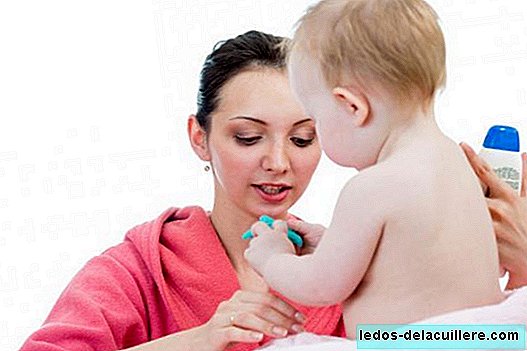
For children, cosmetics have to be much safer
As we can see, a child under three years of age may be more sensitive to certain toxic effects of chemical substances and, therefore, it is necessary to pay special attention to the safety of cosmetic products intended for this population and this is seen in the European regulations
The guide "Safe cosmetics for young children", published by the Directorate of Drug Quality and Healthcare of the Council of Europe, points out new risks for children under three years (although in some cases, even above that age). And it is that the behavior of children generates new routes of exposure to the ingredients of cosmetic products.
Because it is clear that an adult (in normal conditions) is not going to have a drink of cologne, or shampoo, or will eat toothpaste ... But the case of children is different. The exposure scenarios are varied and depend on age and little behavior. Some examples are:
- Incidental intake of the product when sucking the container or swallowing the contents.
- Intake of small amounts of product, for example, when swallowing the water used to rinse the shampoo or bath gel, or when swallowing the toothpaste (it is considered that the amount they usually ingest is 60%).
- Aspiration or intake of small items from the container, for example, caps, dispensers, etc.
- Aspiration of liquids; Products containing hydrocarbons are especially dangerous.
- The eyes are exposed, directly or indirectly, to shampoos, bath foams, sprays or other types of cosmetic products.
Therefore, both the composition, as recommended quantities, as the manufacture of packaging ... are factors that must be taken into account especially in the case of children's products.
In short, remember that in terms of cosmetic products for the baby you have to use the fair, taking into account the recommendations of children's cosmetics manufacturers and the specific characteristics of the skin and the mode of action of our offspring.
Photos | Brett Samuel on Flickr-CC, iStock
More information | AEPap
In Babies and more | The risk of applying lotions, shampoos and talc on babies, cosmetic products for baby's skin? The essentials, Baby skin: what products we should avoid


